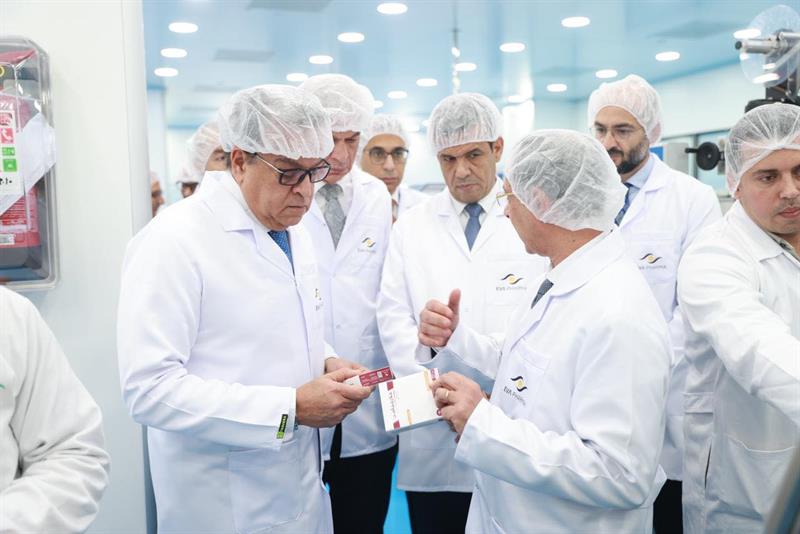Egypt on Tuesday celebrated the launch of the first batch of locally produced insulin glargine, a much-needed medication for millions of diabetes patients in the country.
The long-acting insulin, which will treat millions of diabetes patients, is the result of a 2022 partnership between Egyptian firm Eva Pharma and global pharmaceutical giant Eli Lilly and Company.
“Egypt is prioritizing the localization of pharmaceutical production,” said Health Minister Khaled Abdel-Ghaffar, speaking at the launch event held at the Eva Pharma factory in Giza.
The initiative is a significant step towards self-sufficiency in pharmaceutical manufacturing, Abdel-Ghaffar added.
Blood sugar levels
Insulin is a hormone that helps the body convert food into energy. In people with diabetes, the body either doesn’t produce enough insulin or cannot use it effectively, leading to elevated blood sugar levels.
Insulin glargine works gradually over approximately 24 hours and, like other types of insulin, helps maintain near-normal blood sugar levels in people with diabetes.
Minister Abdel-Ghaffar noted that 15.5 percent of Egyptians are diabetic, a figure that matches the global statistics of the disease prevalence, according to a statement by the health ministry.
Furthermore, Abdel-Ghaffar added that the number of diabetes patients in Africa has reached 24 million, with projections indicating a rise to 55 million by 2045.
He emphasized the urgent need for affordable medications, the statement added.
Affordable insulin
In a joint statement issued today, Eli Lilly and Eva Pharma said they aim to provide high-quality, affordable insulin to over one million people with type 1 and type 2 diabetes annually by 2030.
The partnership focuses on low- to middle-income countries, particularly in Africa, the statement added.
As part of the collaboration, Eli Lilly supplies its insulin active ingredient at a reduced price and provides pro bono technology transfer.
This will enable Eva Pharma to locally formulate and package insulin vials and cartridges for production, according to the statement.
During today’s event, the health minister emphasized that localizing drug production is national security.
He noted that 90 percent of the country’s pharmaceutical needs are currently met domestically, with only 10 percent imported.
Milestone!
Ali Al-Ghamrawy, head of the Egyptian Drug Authority, described the move as a major national achievement.
He explained that the focus on localising insulin production is crucial, as insulin is an essential medicine for millions of diabetes patients.
Highlighted its economic benefits, Al-Ghamrawy said that the move will significantly reduce Egypt’s import costs.
By the end of September, these costs for insulin alone amounted to $30 million.
He added that Eva Pharma’s production capacity, which can reach 100 million insulin vials, will contribute to the sustainability of the Egyptian pharmaceutical market.
Egypt currently has 10.9 million people with diabetes, Hossam Abdel-Ghaffar, a spokesperson for the health ministry told Al-Masry Al-Youm last week.
He added that this number is projected to rise to 13 million by 2030 and 20 million by 2045.
source/content: english.ahram.org.eg (headline edited)
____________

____________
EGYPT